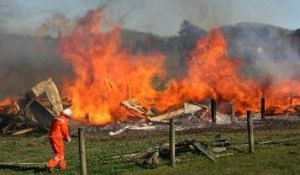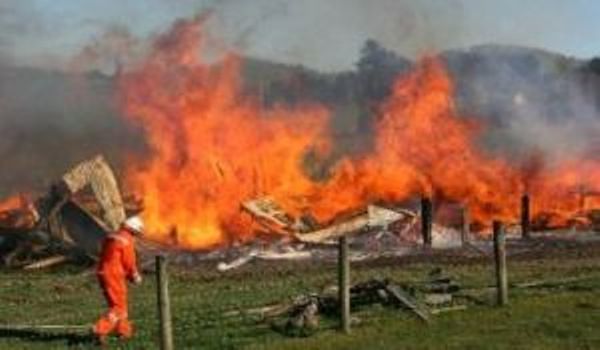Media release: Waikato District Council, 10 December 2015
Restricted fire season will be introduced for the Waikato district

A restricted fire season will be introduced for all areas of the Waikato district from midnight 19 December. Restrictions already exist in areas managed by the Department of Conservation.
A restricted fire season requires permits to be obtained from the Waikato District Council for all fires in the open air with the exception of fires in gas fuelled barbecues or similar outdoor gas appliances. These fires must not be left unattended until completely extinguished and must not be lit in windy conditions or close to flammable material or buildings.
Fire Restrictions apply all year round for the Mangatawhiri swamp area between SH 2 and the Maramarua River and all Department of Conservation land.
A continuous year round Prohibited Fire Season (total fire ban) is in force for the Waiuku Forest.
Applications for permits can be made by completing a Fire Permit Application form online at www.waikatodistrict.govt.nz
Principal Rural Fire Officer, Gordon Bailey, said the introduction of the restricted fire season is the result of the predicted El Nino weather patterns, with little rain and high temperatures contributing to a rapid increase in fire weather danger levels.
“An open fire season has been in place since March and we hope those needing to burn large piles of rubbish have done so in that period, removing the need to burn now when the fire danger is higher.
“The main concern is the risk of fires spreading which is heightened by the dry condition of fuels and strong wind. In areas of peat soils, fires can become deep seated and difficult to extinguish,” he said.
Mr Bailey said if people were granted a fire permit, they must light fires in a safe and responsible manner, ensuring they don’t spread or cause any smoke nuisance to neighbours or nearby road users. He recommends:
- Have water available
- Monitor the fire
- Be sure it is out
- Don’t leave the fire to burn overnight
- Consider alternative methods of disposal other than burning
- If it doesn’t need to be burnt now, wait until weather conditions are more suitable.
Any costs to suppress a fire will be incurred by the person responsible for lighting a fire or the landowner, so care must be taken.

